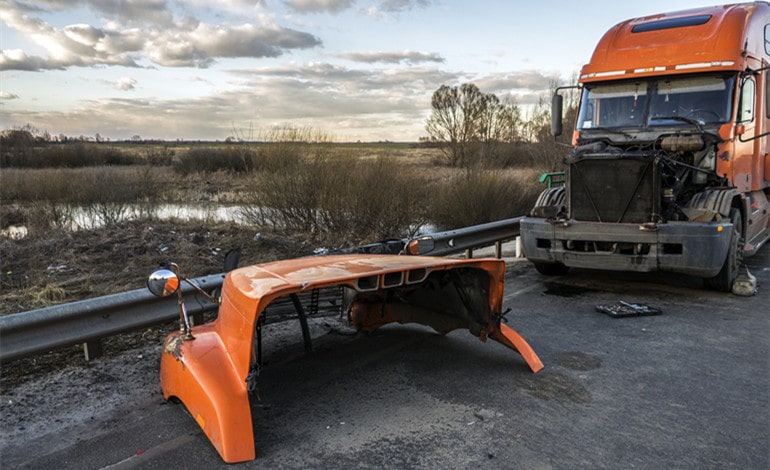The trucking industry plays a vital role in Nevada’s economy, transporting goods across the state and beyond. However, with the increase in truck traffic comes a higher risk of accidents involving trucks and passenger vehicles. When an accident occurs, the consequences can be severe, with injuries often resulting in long-term disability or even death.
In this article, we will explore Nevada trucking injury law, including the legal process for seeking compensation and the unique challenges faced by plaintiffs in these cases.
Click the link to hire a truck accident super team to help with your case.
Understanding the Scope of the Problem
Before diving into the specifics of Nevada trucking injury law, it’s essential to understand the scope of the problem. According to the Federal Motor Carrier Safety Administration (FMCSA), there were 4,862 fatal crashes involving large trucks in the United States in 2018, an increase of 1% from the previous year. Of those accidents, 67 occurred in Nevada alone.
Truck accidents are often more severe than other types of motor vehicle accidents due to the size and weight of commercial trucks. The sheer force of a collision with a truck can result in catastrophic injuries such as traumatic brain injuries, spinal cord damage, and internal organ damage.
In many cases, victims may require extensive medical treatment, rehabilitation, and ongoing care, leading to significant financial burdens for themselves and their families.
Negligence and Liability in Nevada Trucking Injury Cases
In order to seek compensation for damages resulting from a trucking accident in Nevada, plaintiffs must prove that the defendant was negligent and that their negligence caused the plaintiff’s injuries. To establish negligence, the plaintiff must show that:
- The defendant owed the plaintiff a duty of care;
- The defendant breached that duty of care;
- The breach of the duty of care caused the plaintiff’s injuries; and
- The plaintiff suffered damages as a result.
In the context of trucking accidents, the duty of care generally requires drivers to operate their vehicles in a reasonably safe manner. This includes following traffic laws, adhering to federal and state trucking regulations, and exercising caution while driving.
There may be multiple parties involved in a trucking accident, and determining liability can be complex. Potential defendants in a trucking injury case may include:
- The truck driver
- The trucking company
- The owner of the truck or trailer
- The company responsible for maintaining the truck
- The manufacturer of the truck or its parts
In some cases, more than one party may be held liable for a plaintiff’s injuries, and it’s essential to conduct a thorough investigation to identify all potential defendants.
Unique Challenges in Trucking Injury Cases
Trucking injury cases often present unique challenges compared to other types of motor vehicle accident cases. Some of these challenges include:
Federal Regulations
Truck drivers and trucking companies are subject to a complex set of federal regulations that govern various aspects of the industry, including hours of service, vehicle maintenance, and driver qualifications. These regulations, enforced by the FMCSA, are designed to promote safety on the nation’s roadways.
In a trucking injury case, a plaintiff may need to demonstrate that the defendant violated one or more of these regulations, contributing to the accident.
Evidence Preservation
Preserving evidence is crucial in any personal injury case, but it’s particularly important in trucking injury cases due to the unique types of evidence that may be available. For example, many commercial trucks are equipped with electronic logging devices (ELDs)that record data related to the truck’s operation, such as the driver’s hours of service and the truck’s speed at the time of the accident.
Other potential sources of evidence include the truck’s maintenance records, driver training records, and the trucking company’s internal policies and procedures. Obtaining and preserving this evidence can be critical to proving negligence and liability in a trucking injury case.
Expert Testimony
Given the technical nature of many trucking injury cases, expert testimony may be necessary to help establish negligence and causation. For example, an accident reconstruction expert may be needed to recreate the events leading up to the crash, while a medical expert may be required to testify about the extent of the plaintiff’s injuries and their future medical needs.
Compensation for Damages in Nevada Trucking Injury Cases
Victims of trucking accidents in Nevada may be entitled to compensation for various types of damages, including:
- Medical expenses (past and future)
- Lost wages and loss of earning capacity
- Pain and suffering
- Emotional distress
- Loss of enjoyment of life
- Property damage
In cases involving particularly egregious conduct on the part of the defendant, such as drunk driving or intentional misconduct, punitive damages may also be awarded to punish the defendant and deter similar behavior in the future.
The Importance of Acting Quickly After a Trucking Accident
Time is of the essence following a trucking accident in Nevada. There are several reasons why it’s crucial to act quickly:
Statute of Limitations
Nevada law imposes a strict deadline for filing a personal injury lawsuit, known as the statute of limitations. In most cases, you have just two years from the date of the accident to file a lawsuit against the responsible parties. If you fail to file within this time frame, you may lose your right to seek compensation for your injuries.
Preserving Evidence
As mentioned earlier, preserving evidence is critical to the success of your trucking injury case. The longer you wait to take action, the greater the risk that essential evidence may be lost or destroyed. For example, electronic data from the truck’s ELD may be overwritten, or the trucking company may dispose of maintenance records or other documents related to the accident. By acting quickly, you can help ensure that vital evidence is preserved and available for use in your case.
Investigating the Accident
A prompt and thorough investigation is key to building a strong trucking injury case. This may involve interviewing witnesses, reviewing police reports, examining the accident scene, and consulting with experts. The sooner you begin this process, the better your chances of uncovering valuable information and evidence to support your claim.
Conclusion
Trucking injury cases in Nevada can be complex and challenging, requiring a thorough understanding of the relevant laws and regulations, meticulous investigation, and skilled legal representation. If you or a loved one has been injured in a trucking accident, it’s crucial to consult with an experienced personal injury attorney who can help you navigate the legal process and seek the compensation you deserve.







